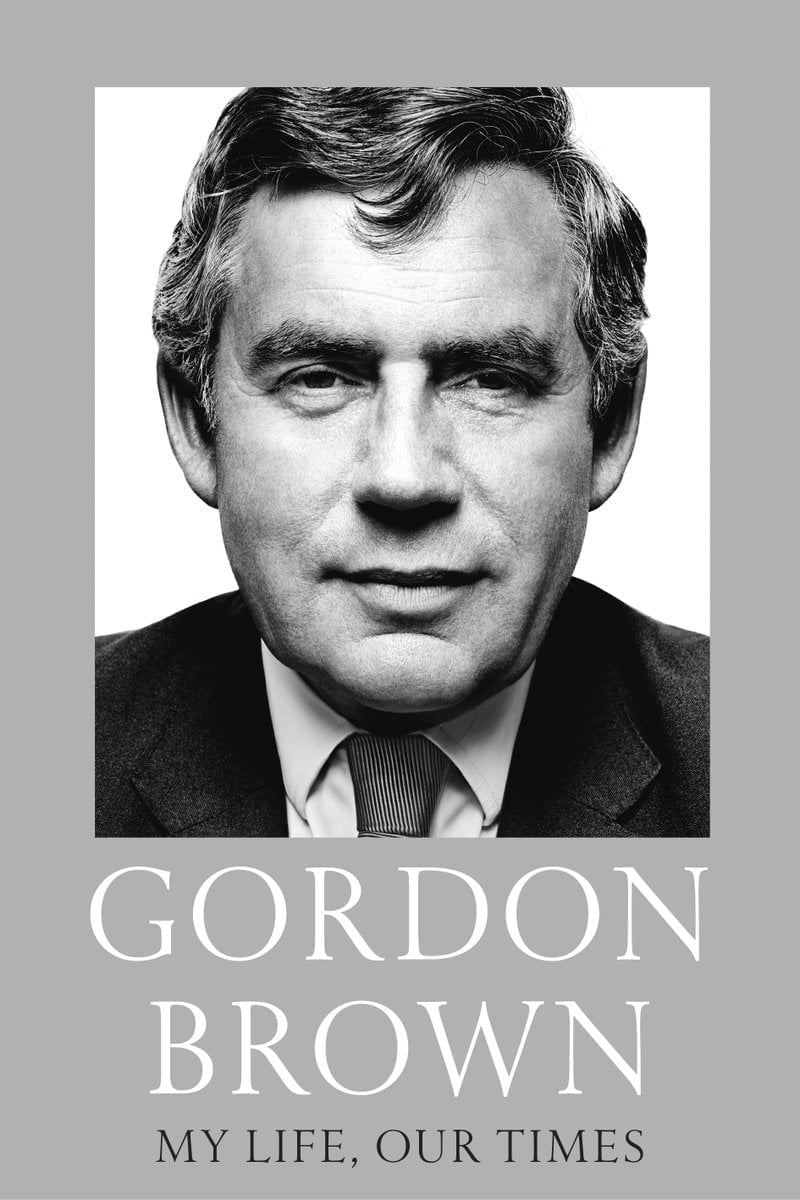Gordon Brown has released his autobiography, entitled My Life, Our Times. In this, and in other recent interviews, the former prime minister has acknowledged the failings of his government and that of New Labour more generally. Unlike the out-of-touch Tony Blair, Adam Booth writes, Brown has sensed which way the wind is blowing politically in Britain.
In contrast to his much loathed and hated predecessor, Tony Blair, Gordon Brown has mostly gone down in history as the “nice guy” who just happened to be in the wrong place at the wrong time: anointed as Labour leader – and thus prime minister – in 2007 on the eve of one of the biggest financial crashes that capitalism has ever seen.
Brown would no doubt like to be remembered as the man who “saved the world from a second Great Depression” for the leading role he played in the 2009 G20 Summit, hosted in London. The former prime minister and his plaudits claim that this was a pivotal moment – in the wake of the banking crisis – for the strengthening of global financial regulations, averting even greater potential economic collapse.
Unfortunately voters did not see it that way, rewarding the Scotsman by voting him out of government in the 2010 general election. As a result of the 2008 crisis and the resultant slump, not to mention years of war and privatisation under New Labour, the Tories were able to come back into government (with the help of then Lib Dem leader, Nick Clegg, and his Faustian coalition pact, of course).
Brown resigned as Labour leader following this defeat and has largely been on the periphery of British politics ever since – albeit with a brief re-emergence in the weeks leading up to the Scottish independence referendum, wheeled out and given centre stage by the No campaign in order to provide an authoritative Scottish voice for Unionism.
The ‘centre-ground’ has failed
 Now, however, a decade on from his entrance into Number 10, Gordon Brown has decided to step back into the limelight with the publication of his autobiography, My Life, Our Times.
Now, however, a decade on from his entrance into Number 10, Gordon Brown has decided to step back into the limelight with the publication of his autobiography, My Life, Our Times.
At the same time, Blair’s successor has chosen this moment to distance himself from his former Downing Street next-door-neighbour. Unlike the out-of-touch warmonger, who has consistently attacked Jeremy Corbyn for breaking the Blairite grip over the Labour Party, Brown seemingly has more political nous and has recently come out in praise of the new (but not New) Labour leader.
Sensing which way the wind is blowing (finally, two years on, when it is already evident to everyone else), Brown recently stated to the BBC’s Today programme that, “Jeremy is a phenomenon…He has come through because he expresses people’s anger at what’s happened – the discontent.”
“When he attacks universal credit, he is speaking for many people,” Brown continued in his interview; “when he says the health service is underfunded, he is speaking for many people.”
Brown went on to acknowledge that the rise of Corbyn (and the mass Corbyn movement) is the result of the failure of the New Labour project; a failure of the ‘centre ground’ to solve the problems facing ordinary people.
“People feel rightly or wrongly that the problems that they have – stagnant wages, inequality, polarisation between rich and poor, public service not being properly financed – they ascribe that to the failures of governments, centrist governments that have not been able to manage globalisation,” Brown admitted.
Such self-reflection is a leitmotif of Brown’s new autobiography also. Commenting on his government’s response to the 2007-08 crisis, for example, the Labour grandee asserts that, “We won the battle to escape recession. But we lost the war to build something better.”
Elsewhere, Brown acknowledges that the City of London and the power of finance capital have not in the least bit been curbed by any of his measures or proposals. “Little has changed since the promise in 2009 that we would bring finance to heel,” the soul-searching author writes. “The banks that were deemed ‘too big to fail’ are now even bigger.”
Fight for a socialist alternative
Despite such self-criticism, however, it is clear that Brown’s recent comments and writings do not in the slightest represent any sort of Damascene conversion to an anti-establishment cause. At the end of the day, after all, Brown himself was a key architect and supporter of the New Labour project.
Moreover, as the longest serving chancellor in British history, he was also largely responsible for presiding over the untrammelled growth of the UK’s parasitic financial industry. To turn around and criticise the bankers now is therefore pure hypocrisy and cant.
As prime minister, Gordon Brown did not save the economy. Rather he simply (and only temporarily) saved capitalism from itself – at the expense of the 99%. In bailing out the banks, Brown’s Labour government nationalised the debts and privatised the profits. The former chancellor and prime minister might now criticise Tory austerity as the wrong economic choice, but it was he and his political bedfellows who paved the way for these devastating cuts.
Rather than such hand-wringing and reminiscing, we should be backing Corbyn, learning the lessons of history, and building a mass political movement armed with a bold socialist programme. That is the only way to put an end to the senile and inherently crisis-ridden capitalist system and the misery that it enforces on society.






